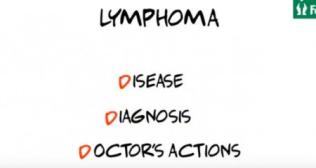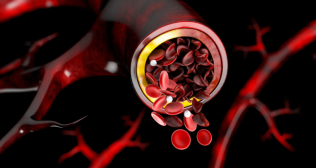
Haematology
Gain Greater Insights On Myeloma
Dr. Rahul Bhargava Aug 27, 2019
Gain greater insights on Myeloma
The disease Myeloma is a type of blood cancer that starts in the bone marrow, the spongy tissue found inside bones. This is where the body makes the blood cells including a certain type of cells called plasma cells. Plasma cells are white blood cells that secrete large amounts of antibodies, transported by the blood plasma and the lymphatic system. When these plasma cells grow out of control, they cloud the normal or the healthy cells in our bone marrow and they gradually build up to form a tumor. In some cases, there could be multiple tumors and this condition is referred to as multiple myeloma.Symptoms of myeloma:
In the early stages of myeloma, our body might not show any symptoms or these can be very mild. In general, Myeloma can cause pain in the bones, especially in our back, ribs and scalp, weakness, fatigue, feeling of very thirsty, frequent infections, fevers, changes in the frequency of urination, restlessness, nausea, vomiting, loss of appetite, weight loss and numbness especially in the legs.Diagnosis of myeloma:
While myeloma can be difficult to diagnose, as it is initially has few or no symptoms, a doctor will order to test our blood, urine and bones. The doctor may also order some additional tests such as electro forensics to test immunoglobulin, BUN- blood urea nitrogen, to check how well the kidneys are working and the CBC- complete blood count, to measure and count the cells in the blood. To confirm myeloma, the doctor might want to do a bone marrow biopsy to check for myeloma cells.Doctors actions- Treatment of myeloma:
For treatment of myeloma, your doctor will refer you to a specialist called hematologist. There are two main objectives in treating myeloma: 1. To bring the myeloma under control 2. To prevent and treat problems associated with myeloma such as anemia and bone pain.To bring myeloma under control, the doctor prescribes a combination of anti-myeloma medicines that might include chemotherapy, steroids medicines that help destroy myeloma cells and make chemotherapy more effective, Thalidomide or Bortezomib that help kill myeloma cells. In some cases, the treatment could include a stem cell transplant that helps our bone marrow to recover. We will talk about stem cell transplant in another video.
And remember, Blood cancer is not a death sentence.
Categories
Clear allMeet the doctor

Dr. Rahul Bhargava
PRINCIPAL DIRECTOR & CHIEF - HEMATOLOGY, HEMATO ONCOLOGY & BONE MARROW TRANSPLANT | Fortis Noida
- Haematology | Haematology
- Organ Transplant | Hemato-Oncology | Haematology and BMT
- Oncology | Hemato-Oncology
-
15 Years
-
1000
 Available at 1 different locations
Available at 1 different locations

Fortis Gurgaon




















